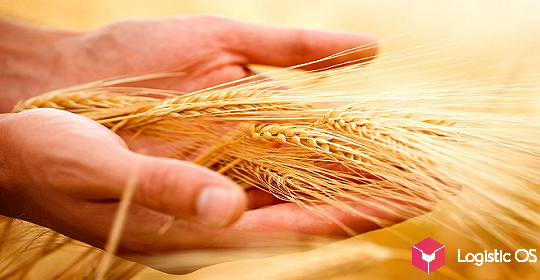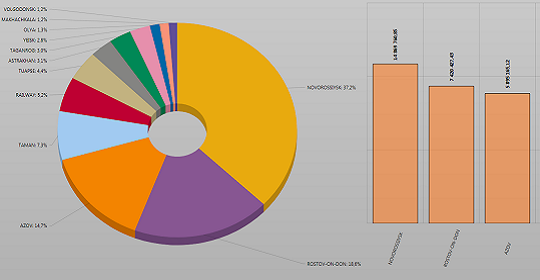Over the past year, Russian agricultural exports increased by about 12%, this year there are also reasons to expect growth by about 10%.
This opinion was expressed by Deputy Prime Minister of Russia Victoria Abramchenko at the St. Petersburg International Economic Forum.
Sanctions and difficult relations with Western countries do not prevent Russia from building up its export potential; supplies of agricultural products abroad are growing both in monetary and physical terms.
At present, 750 export contracts for the supply of grain, butter and sugar have already been concluded, and settlements under these contracts will take place in national currencies.
For example, Russian dairy products are actively bought by the CIS countries, as well as Iran, Syria, Egypt, Abramchenko noted.
There are prospects for adding new countries to this list, negotiations are underway with them.
By the way, Russia is actively developing the industry for the production of halal dairy products, which allows us to talk about the prospects of entering many Muslim countries where such products are in high demand.
Are the forecasts too optimistic?
Alexander Korbut, an independent grain market expert, believes that there are still no grounds for growth of 10% in 2023, only 5-6% can be counted on.
The main problem now is that prices for many categories of agricultural products have dropped significantly.
For example, vegetable oil is now at multi-year lows. This leads to the fact that it will be very difficult for our farmers and exporters to demonstrate new export records, especially in terms of money.
However, there are also positive factors that can help our farmers.
The first of them is the discovery of China, which is a powerful importer of many agricultural crops.
At the same time, this year he has problems: right during the harvest, the fields were flooded with rain.
Therefore, it is very likely that the Celestial Empire will want to buy a certain amount of grain from its «strategic partner» Russia.
In addition, as Korbut noted, although today the main focus is on the supply of agricultural products grown in Russia to friendly countries, but also unfriendly ones, nevertheless, continue to purchase it.
For example, there is every reason to believe that Europe will continue to acquire Russian meals.
True, competition with Ukraine is a certain problem, but if the grain deal is not extended, then it will be more difficult for Ukrainian products to enter world markets, which will cause, among other things, an increase in prices, experts say.

